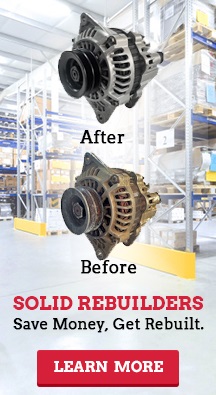- Home
- Forklift Parts
- Propane
- Fittings
Categories
Fittings
Find Reliable Propane Fittings for Your Forklift at Sourcefy
Propane fittings are crucial components in the fuel systems of propane-powered forklifts. They ensure the safe and efficient fuel delivery from storage tanks to the engine.
These fittings include a variety of connectors, adapters, and valves that secure and seal the propane fuel system, preventing leaks and maintaining the proper pressure levels necessary for optimal engine performance.
What are Propane Fittings, and What Roles Do They Play?

Propane fittings serve several key functions in forklift operations:
- Connection Security: They connect critical parts of the propane system, such as the tank, hoses, regulator, and carburetor, ensuring a secure and leak-proof seal crucial for safety and efficiency.
- Fuel Regulation: Certain fittings are designed to regulate gas flow and pressure, ensuring the propane is delivered to the engine at the correct rate and pressure for efficient combustion.
- Adaptability and Compatibility: Adapter fittings allow for the integration of components with different sizes or types of connections, enhancing the fuel system's versatility and upgrade capability.
- Safety Compliance: High-quality propane fittings are designed to meet strict safety standards, preventing leaks and other hazards associated with propane fuel systems.
Choosing the right propane fittings is essential for maintaining the forklift's operational integrity and ensuring safety regulations and standards compliance. Proper installation and maintenance of these fittings prevent downtime and ensure a safe working environment.
As you explore our collection at Sourcefy, you'll find durable and reliable fittings that provide peace of mind through enhanced safety and performance.
Why High-Quality Propane Fittings Are Important?

Risks of Using Substandard Fittings Using substandard propane fittings can pose significant risks, primarily due to the potential for gas leaks and failures in the fuel system. Such leaks not only risk fire hazards but also compromise the operational safety of the forklift, putting operators and nearby personnel at risk.
Additionally, inadequate fittings can lead to inconsistent fuel flow, affecting the forklift's performance and efficiency.
Benefits of High-Quality Fittings
Investing in high-quality, certified propane fittings is crucial for several reasons:
- Reliability: Premium fittings provide a reliable connection that ensures consistent fuel flow and pressure, which is crucial for the engine's optimal performance.
- Durability: High-quality fittings are made from superior materials that can withstand harsh environments, resist corrosion, and endure the vibrations typical in forklift operations.
- Safety: Certified fittings meet rigorous safety standards, significantly reducing the risk of leaks and other dangerous situations.
Installation and Maintenance of Propane Fittings

- Check Specifications: Always verify that the fittings match the specific requirements of your forklift model, including size and pressure ratings.
- Use Proper Tools: Employ appropriate tools to secure fittings without over-tightening, which can damage threads and seals.
- Test for Leaks: Conduct a thorough check for leaks using soapy water or a gas detector to ensure all connections are secure after installation.
Maintenance Tips
- Regular Inspections: Periodically inspect the fittings for signs of wear, corrosion, or damage.
- Immediate Replacement: Replace any fittings that show signs of deterioration or damage immediately to maintain safety and efficiency.
- Keep Connections Clean: Ensure the connections remain clean and debris-free to prevent blockages and maintain a good seal.
Why Buy From Us?
Our propane fittings are selected for their quality and durability, meeting or exceeding industry standards. We ensure each fitting offers the reliability for safe and efficient forklift operations.
Expert Support
Our team of experts is available to assist you in choosing the right fittings for your needs, providing guidance based on years of industry experience.
Competitive Pricing and Fast Shipping
We offer competitive pricing on propane fittings and fast shipping options to ensure you can maintain your operations without unnecessary delays.
Frequently Asked Questions
How do I Choose the Right Propane Fitting for My Forklift?
Choosing the right propane fitting depends on several factors, including the make and model of your forklift, its propane system, and the specific operational demands. Always refer to the manufacturer’s specifications to match the thread size, pressure rating, and material compatibility.
Consider the environment where the forklift operates; for example, stainless steel fittings may be preferable in corrosive environments.
What are the Signs That Propane Fittings Need to be Replaced?
Propane fittings should be checked regularly for signs of wear, such as corrosion, cracks, or any visible damage that could lead to leaks. If fittings become hard to connect or disconnect or there is a smell of propane in usual operations, these are clear indicators that fittings may need replacing.
What Maintenance Routines are Recommended for Propane Fittings?
Regular maintenance should include a visual inspection for wear or damage, checking for leaks with a soapy water solution, and ensuring all fittings are tightened securely. It’s also important to clean any debris or residue affecting the fitting’s performance. Periodically, it may be necessary to replace seals and gaskets to ensure a tight seal and prevent leaks.
How Often Should I Conduct Pressure Tests on Propane Fittings?
Pressure testing of propane fittings should be conducted annually to ensure that the connections can withstand the system’s operational pressures without leaking. This is critical for maintaining the safety and efficiency of your propane-powered equipment.
 Loading... Please wait...
Loading... Please wait...



